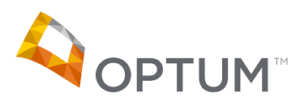Using UHC Insurance with Optum for Drug & Alcohol Rehab
Optum, a clinical healthcare service provider serving over 127 million individuals.1 Optum itself is not an insurance company, but a network of doctors and facilities that collaborate closely with United Healthcare and other major insurance companies to coordinate treatment.
They have established contracts with a wide range of providers and facilities, including those specializing in addiction treatment. This article will explore how UHC/Optum cover behavioral health treatment.
Does Optum/UHC Cover Addiction Treatment?

Optum and United Healthcare work together to adhere to federal parity guidelines, which require that coverage for addiction treatment and mental health services be on par with coverage for medical and surgical care.2
Your insurance coverage for addiction treatment will vary based on your specific policy. Generally, staying within your plan’s network will provide significantly better coverage compared to seeking treatment outside of it. You can verify your coverage now with our short and simple .
Which Types of Substance Abuse Treatment Does UHC with Optum Offer?
With your United Healthcare/Optum coverage, you could gain access to a variety of evidence-based treatments for substance use disorder (SUD), including:
- Medical detox.
- Inpatient drug and alcohol rehab.
- Outpatient addiction treatment.
- Transitional housing.
In the New England area, numerous addiction treatment resources accept UHC/Optum plans. For instance, AdCare facilities in Rhode Island and Massachusetts are part of the UHC/Optum network, offering a comprehensive range of services from medical detox and inpatient rehab to outpatient therapy.
How Much Does Addiction Treatment Cost with United Healthcare/Optum?
The out-of-pocket costs for addiction treatment can vary based on several factors, including:
- The type of treatment (inpatient vs. outpatient, etc.).
- Whether insurance is utilized and the specific coverage details of the plan.
- The treatment facility selected.
Typically, patients need to meet their deductible—an amount that must be paid out-of-pocket each year before insurance coverage kicks in.3
After the deductible is met, patients may be responsible for either a co-insurance percentage of the total treatment costs or copayments at the time of service.
- A co-insurance percentage represents the portion of treatment costs that a patient must pay out-of-pocket.4 For instance, if the co-insurance rate is 20% for an inpatient stay, the insurer would cover the remaining 80%.
- A copayment is a fixed fee paid when receiving services, such as attending an outpatient counseling session.5
Each insurance plan typically has an out-of-pocket maximum. Once this limit is reached, the insurer will cover 100% of eligible health services for the remainder of the plan year.6
Details about these terms and how they apply to addiction and mental health treatment can be found in the summary of benefits and coverage (SBC) associated with each insurance plan.7
For more detailed information on the costs of addiction treatment under your specific insurance, you can call the number on the back of your insurance card to speak with a representative.
How to Pay for Rehab with UHC and Optum
Optum is not an insurance provider; rather, it partners with United Healthcare to offer coverage for a variety of health services, including addiction treatment.
United Healthcare/Optum coverage is accepted at AdCare Treatment Centers. Prospective patients can verify their coverage through a confidential online form on the AdCare website. To complete this process, you’ll need to provide:
- An email address.
- The name of your insurer.
- Your insurance policy number.
Once you’ve decided to use your United Healthcare/Optum coverage for addiction treatment, the program staff may need to secure prior authorization from your insurance company or primary care provider (PCP) before officially starting the rehab admissions process.8 AdCare’s admissions navigators are available 24/7 at to answer any questions and assist you through this process.
Benefits of Using UHC Insurance with Optum for Rehab
Using United Healthcare insurance through Optum allows insured individuals to access addiction treatment that may otherwise be financially burdensome. While there are alternative ways to pay for rehab without insurance, having health coverage streamlines the process, expands options, and significantly reduces costs.
The 6 states in the New England region are New Hampshire, Connecticut, Vermont, Maine, Massachusetts, and Rhode Island. Addiction remains a critical issue in this area, with some concerning statistics:9-11
- Vermont has the second-highest rate of heavy drinking in the nation at 9.8%.
- Data from 2018 indicates that all New England states, except Vermont, rank among the top 10 for opioid-involved overdoses per capita (Vermont is ranked 11th).
- In 2019, Massachusetts was one of the top 5 states for reported fentanyl cases.
If you are struggling with addiction, know that you are not alone, and help is available. Contact an admissions navigator at to discuss your treatment options, including inpatient addiction treatment in Rhode Island, today.